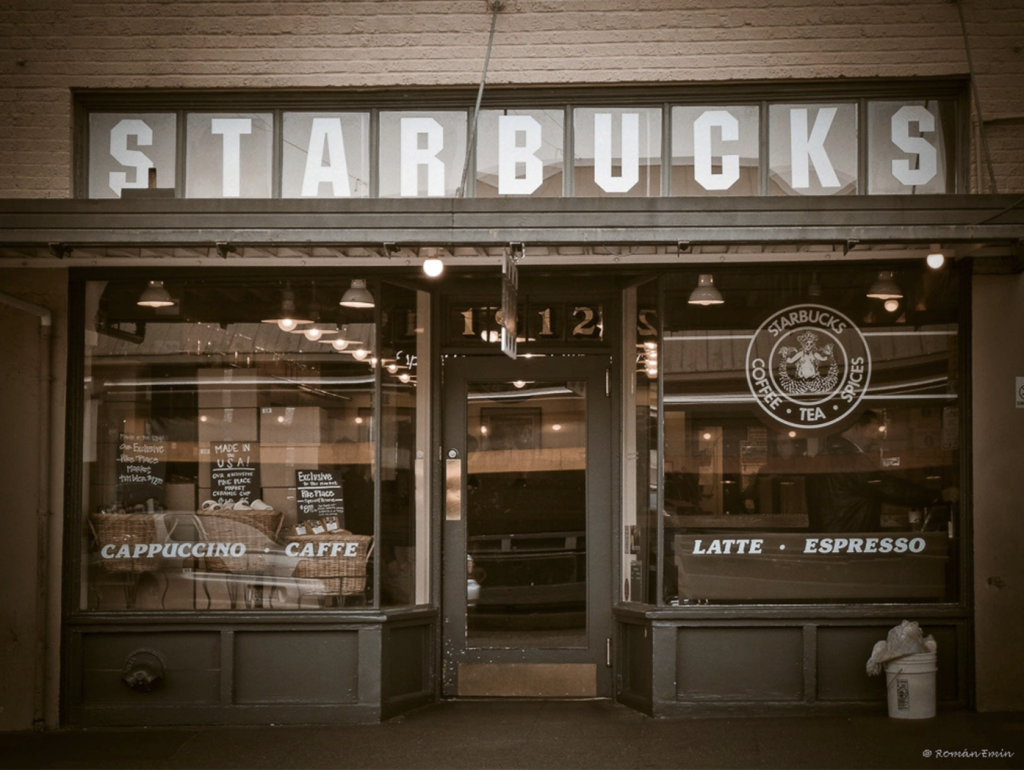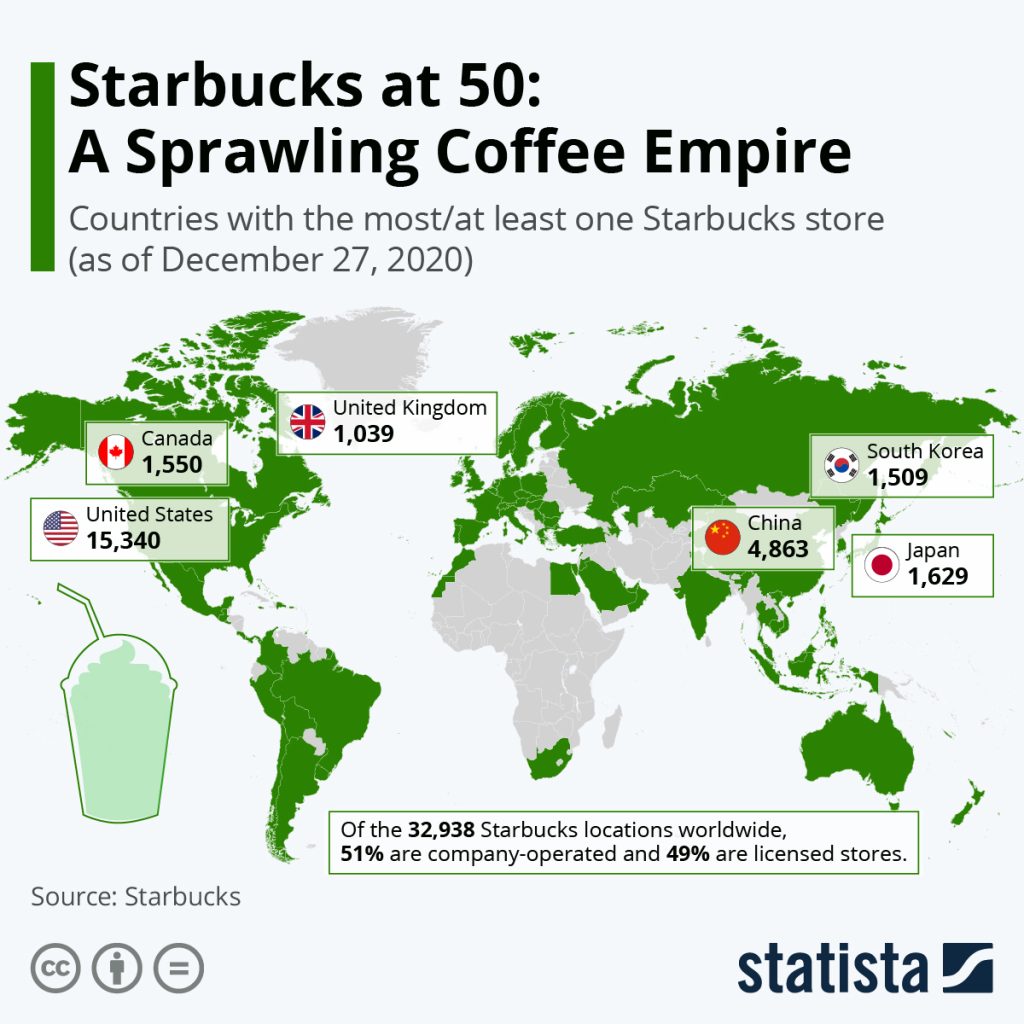Have you noticed that some celebrities, products, or ideas suddenly become so popular that everyone seems to be talking about them? In fact, behind this may not be a “natural occurrence”, but the result of media and commercial forces “creating consent”. This phenomenon is exactly what Noam Chomsky and Edward Herman discussed in “Creating Consent”: how the media uses propaganda to make the public accept a certain viewpoint or behavior.

The Story of a Cup of Coffee
Let’s take a look at an example of entertainment: the rise of Starbucks’ “coffee culture”. In the 1990s, drinking coffee was not a part of daily life in many countries, let alone a symbol of refinement and fashion. But with the help of the media, Starbucks gradually turned “drinking coffee” into a symbol of modern lifestyle.

How is it specifically operated?
Creating a sense of story: Starbucks emphasizes its “third space” concept (social space outside of home and office) through advertising and media, making people feel that going to Starbucks is not just about drinking coffee, but a quality lifestyle.
Celebrity effect: The coffee shop Central Perk in the TV series Friends is a good example. Similar movies, TV shows, and celebrities frequently raise their glasses on camera, making coffee culture quickly a trend.
Media reports: Mainstream media have further strengthened public awareness by beautifying coffee shop culture and promoting the concept that “coffee is a must-have for urbanites”.
What was the result?
In just a few years, Starbucks has not only become popular worldwide, but also made “walking with a coffee cup” a fashionable standard. This is a process of “creating consent”: through media control and narrative packaging, successfully convincing the public that drinking Starbucks is not just about drinking coffee, but a symbol of identity and a way of life.
How to identify the driving force behind “trends”?
This example makes me reflect on how much of our ‘likes’ are truly our own choices or influenced by media and business forces? Whether it’s chasing “coffee culture”, being obsessed with a certain trend, or pursuing a celebrity, we need to approach these phenomena more critically.

At the same time, the Internet and social media have further amplified the ability to “create consent”. For example, popular products on Tiktok often have well-designed promotion strategies behind them, and users unknowingly participate in this kind of communication.
Maintain independent thinking and try asking one more question: ‘Why is this thing so popular?’ This may be the first step towards escaping the trap of ‘creating agreement’.
Reference:
- Herman, E.S. and Chomsky, N., 1988. Manufacturing Consent: The Political Economy of the Mass Media. New York: Pantheon Books.
- The Guardian, n.d. The role of media in the Iraq War. [online] Available at: https://www.theguardian.com[Accessed 11 Dec. 2024].
- The New York Times, n.d. How social media algorithms influence public opinion. [online] Available at: https://www.nytimes.com [Accessed 11 Dec. 2024].


HI! Zishan, I really like your topic🤩 and it reminds me of a very interesting moment in my childhood.
In your article, Noam Chomsky and Edward Herman’s theory of ‘manufactured consent’ reveals the role of the media in advancing specific agendas and commercial interests, which you nicely illustrate through the case of Starbucks coffee culture.
Starbucks’ “third space” concept not only redefined coffee culture, but also created a social phenomenon. At the same time, you mentioned advertising, celebrity effects and media coverage, showing how different levels of influence interact with each other, ultimately contributing to the formation of ‘manufactured consent’. In particular, you point to the influence of the TV series ‘Friends’, which shows the important role of entertainment media in shaping cultural trends.
I can clearly see the power of this cultural influence in my own experience. During my junior high school years, walking around with a cup of coffee gradually became a trend. At the time, many people, including myself, thought it was both a fluffy and cool thing to do. Although it may seem funny now, at that time it seemed that the act of holding a cup of coffee instantly raised one’s ‘coolness’ quotient and made me feel different at a young age.
This phenomenon is a direct manifestation of ‘manufactured consent’. Through the influence of the media and popular culture, we have come to associate our everyday habits with a particular identity, and this association is often cleverly designed and promoted. My experience reflects how this cultural phenomenon subconsciously influences the perceptions and behavioral choices of people, especially the younger generation.
This reflection on my personal experience has made me more aware of the importance of critical thinking and, as you say in your article, the fact that we should remain independent thinkers, especially in the face of seemingly universally accepted trends. We need to always question what really means something to us and what is merely being molded to cater to a seemingly popular social acceptance.
Hi Zishan. your article reveals how the media ‘creates consent’ with vivid examples of coffee culture’, which makes complex theories easier to understand. By linking Herman and Chomsky’s ideas to trends in everyday life, you succeeded in illustrating how the media can shape consumer behavior and attitudes through narratives, celebrity effects and mainstream reporting. In particular, you mention ‘shaving a sense of storytelling’ and the ‘celebrity effect’, strategies that are indeed at the heart of modern media operations. The insight that through pop culture phenomena such as Friends, coffee culture ‘has become not only a commodity but also packaged as a lifestyle’ is spot on. However, what I think could be explored further is whether this phenomenon of ‘manufactured consent’ will change as a result of the diversification of social media? For example, on platforms such as Tiktok, whilst user engagement has exacerbated the proliferation of trends, has the algorithmic push somehow made manufactured consent’ more insidious and harder to resist? Additionally, you mention ‘maintaining independent thinking’, but how exactly do you develop this ability? Perhaps sharing some specific strategies, such as analyzing news sources and understanding the logic behind business interests, would make the article more practical and instructive. Overall, your blog combines academic theories with real-world examples in a way that is both insightful and easy to elicit empathy from readers. I hope that in your future writing, you will further explore the new mechanisms of ‘consent creation’ in the age of social media, and how users can ‘decode’ this information more effectively.”